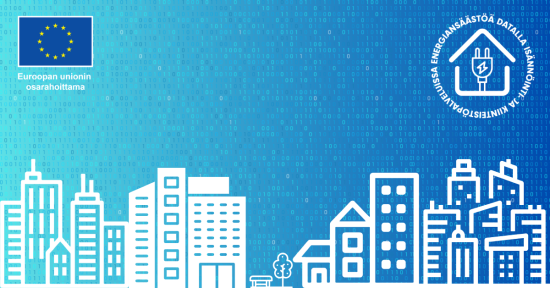Knowledge is power. Information in digital form – data – is the capital and raw material for the rapidly growing data economy.
Europe is now constructing data spaces that will enable the growth of the data economy. Although this development is particularly topical at EU level, there is also global interest in it. This opens up new opportunities for Finnish companies.
Data spaces provide new pathways for companies to grow and innovate faster, provide access to key data exchange resources, and enable data to be sold and shared between different parties.
The Finnish Information Society Development Centre (TIEKE) promotes the use of data spaces in Finland by raising awareness through communication, and in the future also through development projects and training.
Controlled data distribution through data spaces
At their best, data spaces are large, shared data infrastructures that cross national boundaries and are related to domains such as skills, health, public administration, agriculture and health data. The purpose of data spaces is to promote data sharing and thereby the value of data for the benefit of the European economy and society.
According to Gaia-X Finland’s Antti Poikola, a senior expert at the Finnish Innovation Fund Sitra, data spaces are infrastructures – soft infrastructure – that facilitate the sharing of data across organisational boundaries, according to agreed rules and in an easily scalable way.
Research Manager Katri Valkokari of VTT Technical Research Centre of Finland points out that data spaces are not undefined bit spaces where data is uploaded openly for everyone to access. This is one of the key advantages and differences of data spaces compared to conventional data processing and sharing. Companies and other organisations – the owners of the data – can decide what to share, whom to share it with and what purposes to display it for.
Valkokari explains that in data spaces, data is not uploaded or transferred to an external cloud server or platform but instead remains in its original location. From there it is retrieved with permission for display.
Once the agreements and rules governing the use of the data are clear, operations in the data space can be scaled up quickly and flexibly. New parties can quickly join the ecosystem without the need for separate manual customisation of contracts and technology. Data sharing can be managed flexibly, and contracts can be modified as the needs of the parties change.
Data spaces: tools for scalable data visualisation in the data economy
Poikola clarifies the role of the data space in the data economy with the concept of a three-tiered pyramid. The bottom third of the pyramid is the foundation, the middle is made up of the functioning ecosystems, and the apex is the data space itself.
At the base of the pyramid are the internal capabilities of the company or other organisation to understand its own data: what it is, what its value could be, and how it could be used. The middle third of the graph relies on an understanding of data use in ecosystems outside their own organisational boundaries, in business operations networks. Data can be used to solve challenges where the knowledge, skills or other resources of an individual company or other organisation alone are insufficient.
At the top of the pyramid is the data space, which in itself is just a tool for sharing data in a controlled and easily scalable way. The two lower levels should be in place before moving on to the data space, Poikola says. To this end, TIEKE has worked on the two lower levels in various ways, including the Growth from Data programme. TIEKE is currently planning what it has to offer for the third level.
Valkokari emphasises that before participating in data spaces, it is advisable to gain an understanding of whether sharing and exchanging data has business or societal benefits.
“It’s sensible to be aware of the ways in which data spaces differ from other data integration and exchange technology, as a data space is not necessarily the right choice for everyone. Instead of rushing into the use of data spaces, it’s better to think of what is to be used, why, and for whom. A sound piece of advice is to start with current and future businesses, ecosystems and other parties.”
Data spaces streamline data collection and reporting
The benefits and opportunities offered by data spaces relate to the controlled, contractually compliant display of data and its fast and flexible scaling.
New parties can join ecosystems quickly, for example when a manufacturing company needs new subcontractors or a logistics company acquires new distributors. In addition, data spaces make data collection, aggregation and reporting more efficient and enable automation.
Data spaces also offer benefits in terms of artificial intelligence and the EU’s digital product passports.
When the data owner can limit who, what and for what purpose the data is made available, different kinds of AI is easier to train. The common rules for data spaces also provide protection for the owners of the data as well as the AI trainers, among others. The owner will only release the data they want, and the AI trainers can use the data they have permission to use with peace of mind. Industry-specific data spaces also allow AI to be trained according to their particular needs.
Data spaces will be a key enabler for the creation of EU digital product passports. Data distributed in different locations can be conveniently retrieved from the data location and then displayed in the desired formats, for example to parties in the order and supply chain.
Valuable data can also generate new business opportunities, improve a company’s profits and bring environmental benefits. Poikola gives the example of a maritime project in which Sitra is a co-funder. The purpose of the project was to explore how to reduce the fuel consumption of ships.
Using data from several different operators, the ships were guided to ports to obtain information on the free time available for unloading. This meant that the ships did not have to rush to port just to wait for a convenient unloading time. The experiment saved fuel, benefitting both the shipping company and the environment.
Ample potential in the development of Finland’s data economy
In Europe, there are a total of 14 industrial sectors in which data spaces are being developed. For instance, Germany and France are major data economy development countries, and have also received national funding for data space projects. These countries already have more projects and business actors in data spaces than there are in Finland.
Although Finland is still at an earlier stage of development with data spaces than some others, there is a great deal of knowledge and potential in the country. According to Poikola, Finland is undoubtedly among the most advanced countries when it comes to the development of data spaces. VTT and its partners are running data space projects worth around a total of approximately EUR 24 million in Finland, and around EUR 100 million at European level.
The main challenge in promoting data spaces in Finland is that the related projects are still individual experiments rather than day-to-day business operations. And according to Valkokari, Finland still lacks strong driving companies that are willing to make advances in matters related to data spaces. Finding the right orchestrators – in other words, project and implementation leaders – is another challenge for successful data space projects.
Data spaces are not just a development of the data economy in Europe alone, Valkokari points out; the issue is attracting interest from as far away as China and Japan as well. And there are similar projects underway elsewhere in the world, Poikola adds, just under different names.
Data spaces to revolutionise how organisations use data
- Data spaces are the infrastructure that facilitates the sharing of data between companies and other organisations across organisational boundaries, according to agreed rules and in an easily scalable way.
- In the EU, data spaces are a major investment focus. In early 2024, funding calls worth a total of EUR 74 million were opened, a large part of which is linked to data spaces.
- The Data Spaces Support Centre (DSSC) has put together a Data Space Starter Kit for data space designers. This introductory information package will be helpful in taking the first steps in designing data spaces.
- Sitra’s publication of its snapshot of Finnish data spaces provides a comprehensive overview of the state of data spaces in the country at present.
- As a founding member of the new Data Spaces Alliance Finland, which was established in this country, TIEKE supports organisations in harnessing the potential of data spaces. Read more.
Collaborate with TIEKE?
Want to help organizations in themes such as digital competence, data economy, real-time economy, or sustainability? Partner with us!
TIEKE Finnish Information Society Development Centre is a non-profit organisation founded in 1981 aiming to develop, improve and support a thriving information society and all its digital endeavours.
We help organizations in various ways:
- Projects and initiatives
- Networking and ecosystem work
- Surveys and studies
- Expert services and advice
- Webinars, online trainings and coaching programmes
- Materials and guides
We have a track record working in various project roles: coordination, partner, expert, comms and more.
We run around 15 projects per year and are familiar with instruments such as CERV, Erasmus, ERDF and ESF.
We work with wide array of target groups such as SMEs, large companies, educational organizations, public sector and associations.
Don’t hesitate to get in touch to discuss collaboration opportunities with us!










